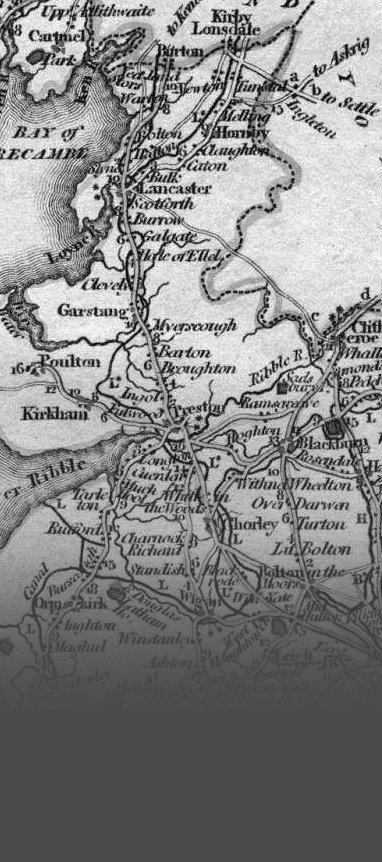

The Oldest Lancashire Ghost Story
22nd April 2021
The Record Society’s inaugural Colin Philips Memorial Lecture was given by Prof Paul Booth on 7 April when he explored The Oldest Lancashire Ghost Story. Based on a fascinating tale taken from a fourteenth century commonplace book, Paul Booth examined the details, the structure and the purpose of the story.
Dr Booth has published an English translation of the original Latin text, which is available here.
The story was written by a preacher, probably a friar, to be told to a congregation, almost certainly in Winwick church in the 1370s. An unmarried couple have sons before the man (a ploughman by occupation) marries someone else. The woman dies and one dark night, as the man is walking home, her ghost accosts him. As Prof Booth pointed out, darkness would have been very real at the time. The woman’s spirit invites her former lover to pull a tangle of her hair, which is thick and black (although it was gold-coloured in life). Once he has done this, she tells him that to release her from great suffering, he must arrange for as many masses to be said as there are strands of hair in his fist. The man shoves the hair into a hole in a doorpost, promptly sells half his worldy goods, and travels widely finding suitable priests, whom he pays to recite mass. Each time he is successful, a black hair in the bundle turns golden, and on a prearranged date, the man meets with the woman’s ghost again, to discover that his efforts have been successful, her hair is golden-coloured again and she is saved from the horrors she was enduring.
Prof Booth invited the audience to consider what the point of the story was. Would the congregation have believed literally in ghosts, why did the man have to travel so far to find “worthy” priests, and where was the woman coming from and going to? Perhaps the efforts were to ensure the priests were reliable and would actually deliver on their promises. The woman was perhaps stuck in purgatory and the events of the ghost story removed her to heaven.
But most of all, asked Paul Booth, would the friar have achieved his ends. Would the congregation have stuck any more firmly to what the church expected of them, would they have given more money for more masses? The people of the past, said Prof Booth, were “just like us, only in different circumstances”.